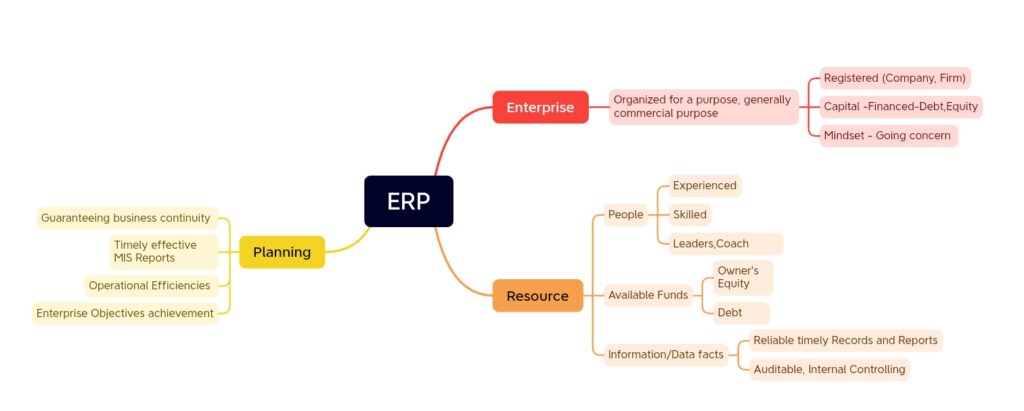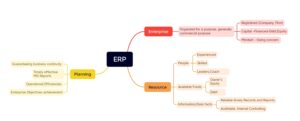
For few decades in the past, the word ERP is gaining lot of attention and interest among Finance enthusiasts – be it students who already have earned their degrees or those who are still doing their studies, working accountants as well as other professionals. Think of ERP, we start visualizing 3 terms namely – Enterprise, Resources and Planning. Let’s explore, in-fact, what it means for any Finance & Accounts enthusiast?
What is ERP for Finance Accounts Enthusiasts?
With increasing trend of digitalization in key business processes, ERP is attaining significant focus as it remains data hub for any commercial company since business records are created in ERP now with greater controls than ever before. Major ERP companies such as SAP, Oracle and Microsoft are highly investing to satisfy the dynamic shift in customer needs after cloud computing concept has opened various options in the field of data science, data analytics and data engineering.
ERP is a system that helps enterprises achieving their objectives in an efficient way since ERP helps any organization to channelize the available resources in such a way that it produces higher output or generate higher returns continuously by providing valuable information to develop planning systems based on the reports generated from the records captured while doing business activities.
Given below is an attempt to explain the concept of ERP in simple terms and to throw light on its value for finance and accounts enthusiasts:
ENTERPRISE:
Enterprise can be understood as a group of resources that are organized together for a specific purpose generally commercial in nature. Such a group is generally registered with different appropriate authorities (for example in India, Companies are registered under MCA with ROC).
In order to run business or commercial activities, this registered entity needs to be provided with sufficient capital – be it owned or through debt-financing.
Critical aspect of an enterprise formation is the mindset of ‘continuing the business operations on forever basis’ i.e. going concern basis.
RESOURCE:
Such an organized group (often registered entity) gather all the required resources to attain its objectives. We all know, critical resources to do any business is ‘People or Human Resources’ who can be experienced, skilled, leaders and/or coach, however, for manual manufacturing entities, labor also becomes very critical resource.
Capital is another very important resource that is introduced in the form of Owner’s Equity and / or Debt. Capital needs to have an appropriate mix of Long term capital and Short term capital.
Besides People and Capital, Information (Data-facts) is another critical resource that any entity would require for achieving operational excellence in its day-to-day activities. When information or data-facts are discussed, it is important to understand that the same needs to be prepared in an environment having great internal control and strong internal audit principles in place.
PLANNING:
After having understood the important terms – Enterprise and Resource, Planning comes at last in the context of ERP. Planning for the current and future actions to guarantee the business continuity. Planning is largely based on the timely prepared and presented MIS Reports (Management Information System Reports). An efficient planning system is must to guarantee continuous improvement in any organization and to achieve operational efficiencies to achieve objectives of the Enterprise.
In summary, ERP is a system that is used by people in an organization in almost all the business processes or functions (Human Resource, Supply Chain, Finance, Manufacturing etc.) who collectively creates reliable data-records (information) for an effective planning to impact positively the future actions of the organization.
Follow related articles:
Efinacademy.com is an initiative to support the Finance and Accounts enthusiasts by spreading awareness on important topics/subjects in this domain. The contributions are made through well experienced professionals in the field of finance and accounts who are self-motivated to share their learnings and experiences.

